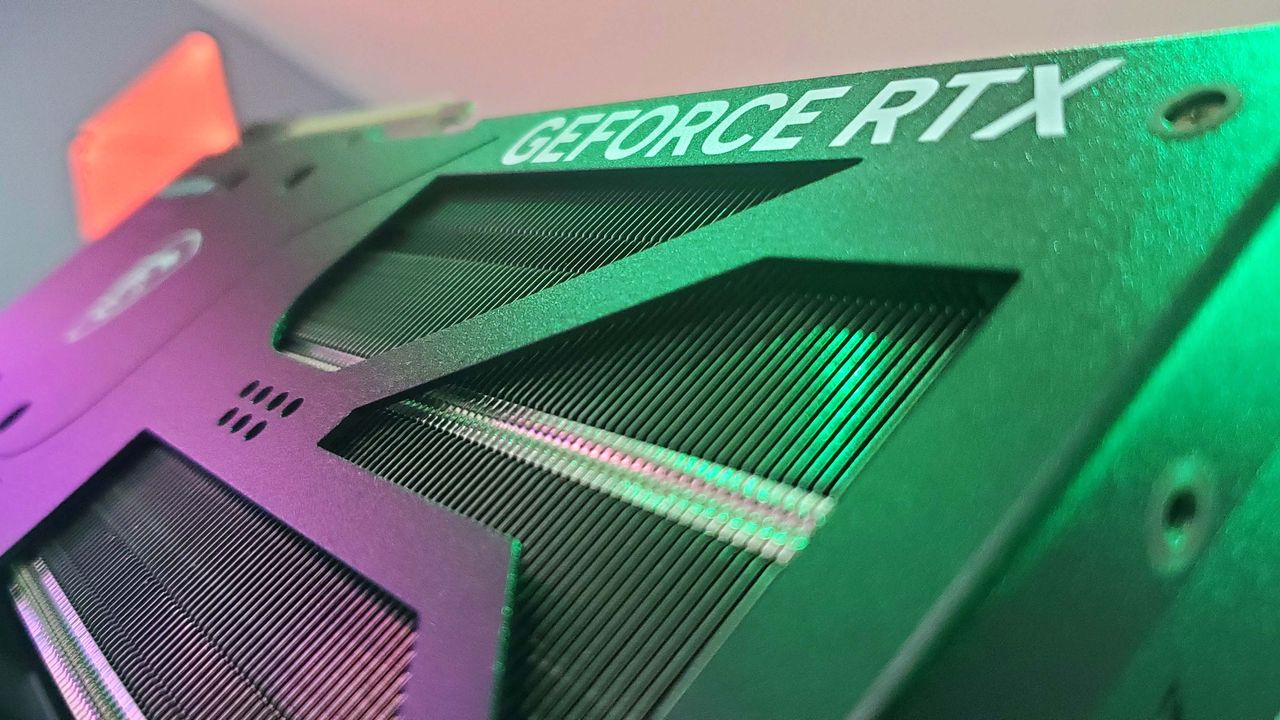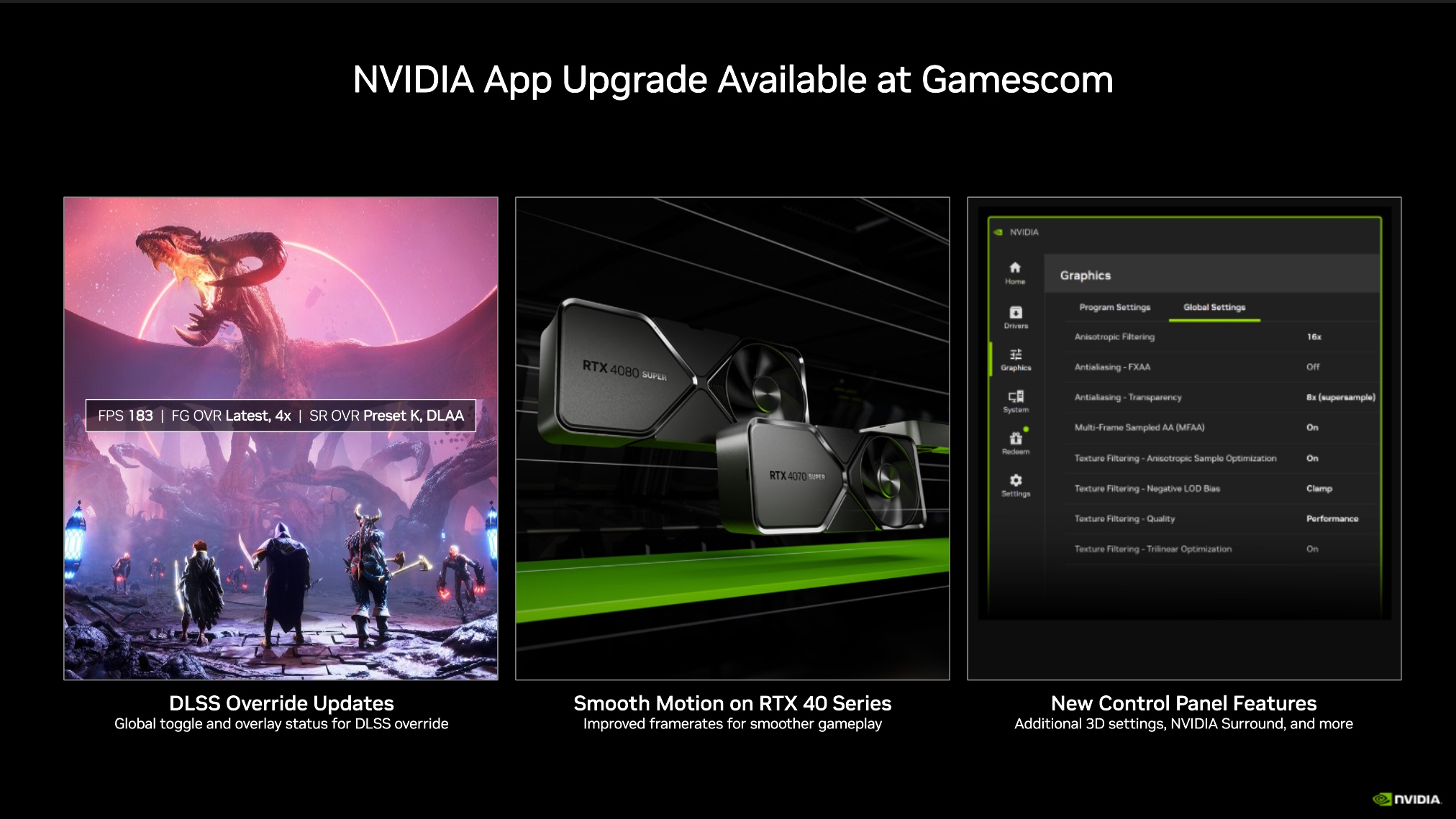
Nvidia has just announced that "probably the most-requested feature" from the community is being added to the Nvidia app: a DLSS Override global toggle. This will allow RTX 50-series cards to force Multi Frame Gen (MFG) in all regular frame gen (FG) games. RTX 30-series, 40-series, and 50-series cards can also force an upscaling model and quality level of choice in all DLSS games.
It can be difficult to keep up with all the changes in upscaling and frame gen tech. Even just on Nvidia's side of the aisle, we have multiple overall DLSS generations as well as multiple kinds of frame generation and different upscaling models. And what's worse, these all have differing support across GPU generations and games.
To break the basics down here, though: DLSS 4 (4x) MFG is still only for RTX 50-series cards, but with DLSS Override, you can force games that only have regular (2x) FG baked into them to use MFG instead.
The other thing DLSS Override can do is allow you to choose which version and level of DLSS upscaling games have enabled, and this is available not just for RTX 50-series cards, but for the RTX 40-series and RTX 30-series, too.
Earlier in the year, Nvidia switched from the convolutional neural network (CNN) model to the transformer model. The latter might sacrifice a little frame rate compared to the former, but it makes up for this with better and more accurate fine details, ie, better visual quality.

So, DLSS Override lets RTX 50-series cards enable 4x FG in 2x FG games, and it lets RTX 30-series, 40-series, and 50-series cards override in-game DLSS options to choose from transformer or CNN model, and your quality preset. Prior to this, you had to select all these things on a per-game basis.
We're also going to be able to see exactly which settings a game is using at a glance, to ensure our chosen frame gen and upscaling options are in effect.
There are also a number of other changes to the Nvidia app being made. In addition to various new settings, we're also getting the option to enable Smooth Motion on RTX 40-series cards, which is driver-based frame interpolation.
So, there are no big new technologies being added here, but we're getting easier and wider implementation of them. Of course, the best of the bunch is reserved for the RTX 50 series with MFG, but there are some extra goodies for previous generations, too, now.







